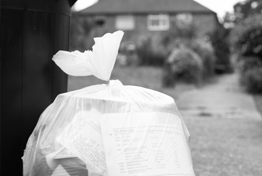CORAL REEF BLEACHING: Why We Need Your Help
- The Terra Project

- Jan 18, 2021
- 3 min read
What is coral reef bleaching?
Corals get stressed from factors, such as pollution or excessive heat that warms the ocean temperatures, therefore they react by expelling symbiotic algae living inside their tissues, causing them to leave a transparent skeleton behind. This process is what is known as coral bleaching.

What are the causes of coral reef bleaching?
One of the main causes of coral bleaching is the carbon pollution that heats up our planet as well as our oceans. The heatwaves cause stress to the corals, which in turn cause coral bleaching. In other words, climate change, one of the many distressing global issues in our world today. There are also many other reasons for the corals reefs to get bleached, such as extremely low tides, pollution, or too much sunlight.

The Great Barrier Reef
The Great Barrier Reef is the largest reef in the world and home to an abundance of marine life. However, it is a risk of being destroyed and has suffered severe mass coral bleaching from the past few years. If this continues and we let pollution take over, there will no longer be a reef, and marine, as well as human life, will be in a severe crisis. For example, in the years of 2016 and 2017, the reef encountered back-to-back bleaching, which left about half of the shallow water corals dead. Later surveys showed that 29% of corals died from the first year's event alone - with most perishing where the waters are the warmest. The 2017's bleaching event stretched south from Port Douglas to Townsville, with an estimation of about 20% dead coral. To make matters worse, a category four cyclone devastated the Whitsundays region, destroying the coral reefs in its path. The combination of the two bleaching events, along with Cyclone Debbie have significantly impacted and deteriorated the health of our Great Barrier Reef.
Why you should care?
Losing coral reefs means that we also lose a vast amount of fish as well as other animals that depend on them. This produces terrifying consequences, such as upsetting food chains, thus impacting the larger creatures that rely on the fish for their diet. The global crisis of coral bleaching not only risks our oceans and the habitats that live inside of them but the livelihood and food supply for over half a billion people. With this being said, there is also the matter of the regrowth of the corals if they die. It is really difficult for corals to come back when they perish and for the few that survive, it is a struggle for them to reproduce, and the entire reef ecosystems, on which people and wildlife depend, deteriorate.
- More effects on the wildlife
Coral reefs support some of the most of the biodiverse ecosystems on the planet, with thousands of marine animals dependent on coral reefs for their survival, including some species of sea turtles, fish, crabs, shrimp, jellyfish, sea birds, starfish, and many more. Coral reefs provide shelter, spawning grounds, and protection from predators as well as support for organisms at the base of ocean food chains. As reef ecosystems collapse, already at-risk species may face extinction.
-More effects on humans
Coral bleaching has a big impact on peoples’ livelihoods, food security, and safety. The reefs are natural barriers that absorb the force of waves and storm surges, therefore keeping the coastal communities safe. We must rely on manmade seawalls that are expensive, less effective, and environmentally damaging to construct without them. Bleached coral also complicates the overfishing crisis by eliminating links in the food web and depriving certain fish and shellfish species of a place to spawn and develop. This puts anyone relying on these animals as a primary source of income or protein in big trouble. Last but not least, tourism brings in billions of dollars each year and supports thousands of jobs, however, bleached coral reefs, void of magnificent marine species, may jeopardize it all.

What you can do to help?
The prevention of coral bleaching must be prioritized and we only ask all of you to make smarter choices in your everyday lives to protect not only the corals inhibited in our oceans, but also the numerous species of animals dependent on it and ourselves as well. Listed below are some of the few and easy ways that YOU can contribute to decreasing coral reef bleaching:
Quit the use of coal and switch to renewable sources of energy
Properly recycle and dispose of trash
Minimize the use of fertilizers
Save energy at work and home
Spread the word!
Sign petitions:
Sources/Further Reading:














Amazing article! I especially love the call-to-action portion at the end about how readers can help.
Thank you so much for sharing this.
YESS! This is so amazing! :)
I LOVE! GREAT JOB!